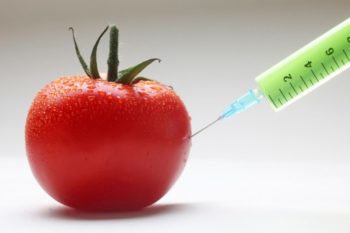
The Federal Government has tasked the Nigerian Custom Service (NCS), National Agency for Food and Drugs Administration and Control (NAFDAC) among other relevant regulatory agencies to partner with the Nigeria Biosafety Management Agency (NBMA) on how to detect Genetically Modified Organisms (GMO).
The Minister of State for Environment, Ibrahim Jubril said the collaboration became imperative to ensure the country does not become dumping ground for poisonous and Genetically Modified (GM) foods.
Jubril said during stakeholders meeting organised by the NBMA, on Wednesday in Abuja that, “Now that modern biotechnology is becoming increasingly important to address emerging challenges with regards to food security and renewable energy demands …..with its perceived and real unintended consequences, we the regulatory agencies must unite with a sense of purpose, vision, mission and determination to ensure that our nation do not become a dumping ground for GM foods and feed nor shy away from reaping the benefits of the application of modern of modern biotechnology and use of GM foods and feeds.”
Jubril, who was represented by the Director of Human Resources, Gabriel Oloto stressed that the teamwork would help in effective monitoring. He subsequently commissioned the NBMA GMO detection laboratory.
Earlier, NBMA Director General, Dr. Rufus Ebegba said the meeting was designed to further partner with necessary MDAs, on the issue of biosafety.
He listed other partnering regulatory agencies to include the National Agricultural Seed Council (NASC), Federal Ministry of Justice, Standard Organization of Nigeria (SON), National Agricultural Quarantine Service (NAQS).
Ebegba said the NBMA was mandated to regulate GM commodities before being allowed into the country for safety reasons, thus need for the collaboration to achieve greater success on biosafety.
“Modern biotechnology is the movement of genes to transfer traits of beneficial interests. We have a law and that will serve as our guide for our operations. So we will not encroach on each other’s responsibilities but we will seek collective efforts in areas of support,” he added.
Speaking on the GM detection lab, the DG said with the standard of technologies in the laboratory, the NBMA can detect the smallest element of GM.
He restated that the facility would help to ensure whatever GM crop imported into the country is well tested and analysed, as the country cannot allow uncertified GM commodities escape into the market.
The African Coordinator, Program for Biosafety System (PBS), Dr. Matthew Dore, in his remark described the meeting as a platform to discuss and analyse legal mandate of NBMA and the government agency as they impact the commercial release of GM crops.
“It is important to discuss the areas of collaboration to overlap in the biosafety decision-making process and define future steps and mechanisms to establish a coordinated regulatory framework,” Dore stated.
Copyright Ships & Ports Ltd. Permission to use quotations from this article is granted subject to appropriate credit given to www.shipsandports.com.ng as the source.
